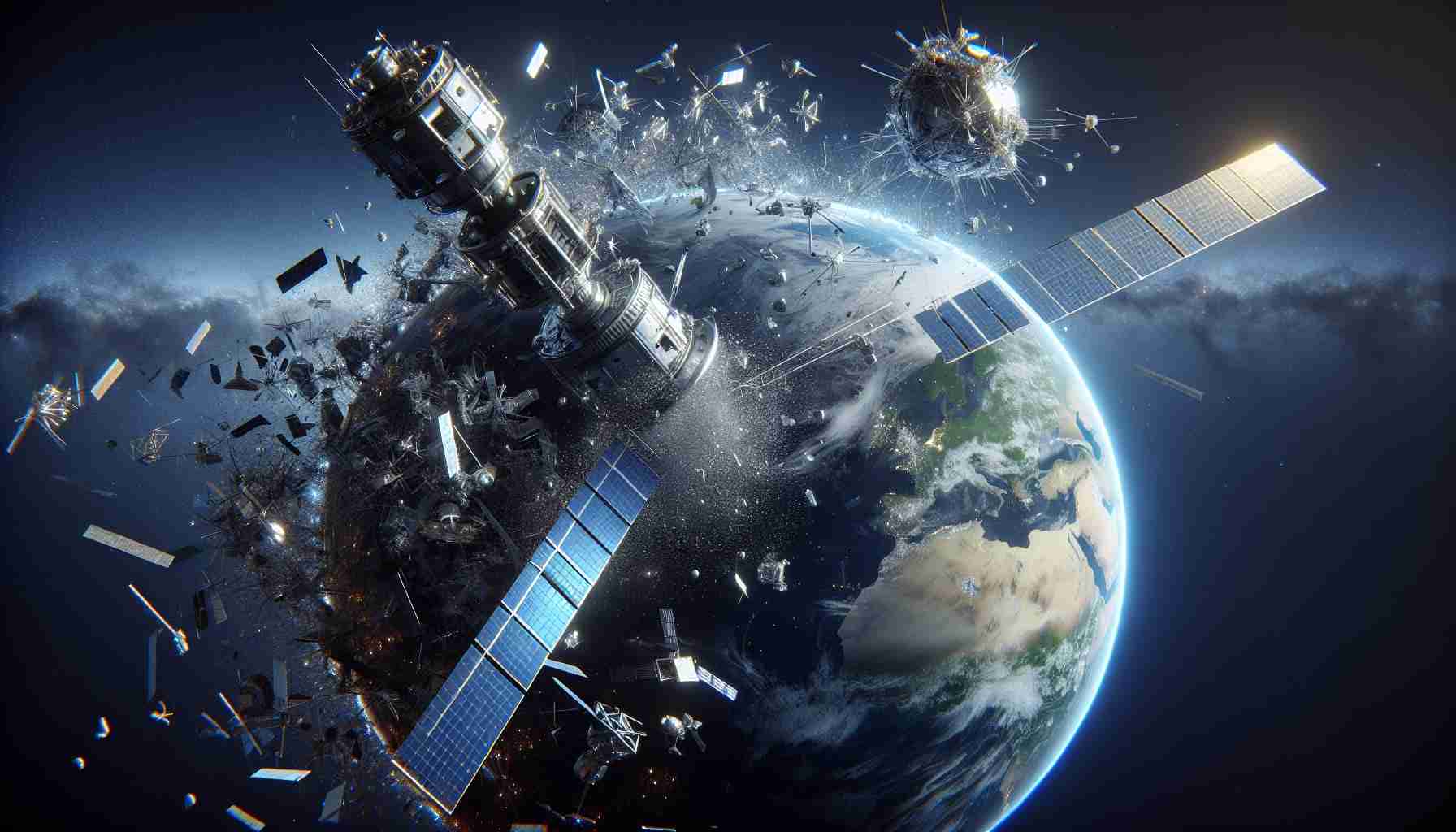The sheer volume of space debris and burgeoning numbers of satellites in orbit have led the United Nations to advocate for enhanced international collaboration in order to avert potential disasters in space.
Low Earth orbit has become increasingly congested, posing significant safety threats. The proliferation of satellites—totaling over 14,000, as reported by Slingshot Aerospace—combined with roughly 120 million pieces of lingering space debris, underlines the urgent need for action. About 3,500 of these satellites are no longer operational, contributing to the clutter.
In a meeting orchestrated by the U.N.’s Office for Outer Space Affairs, experts highlighted the necessity for a global framework to track and manage orbital objects. With space traffic swelling, the U.N. emphasizes the essential role of both governmental and private sectors in information exchange to forestall collisions.
Recent events underscore the risks associated with unmonitored space objects. Notably, incidents like a Chinese rocket explosion in August that scattered debris and June’s unintended fragmentation of a Russian satellite exemplify the burgeoning hazards. Such occurrences even forced astronauts aboard the International Space Station to seek temporary refuge.
As the private space industry rapidly expands, expert forecasts indicate the deployment of tens of thousands more satellites imminently. This expansion calls into question the load capacity of low Earth orbit, as giants like SpaceX’s Starlink ramp up their satellite launches, with other nations readying similar initiatives.
The chief of NorthStar Earth & Space warns that financial repercussions from potential collisions could skyrocket to $556 million over a five-year span, indicating the pressing need for an international regulatory framework to manage space traffic. Without decisive action, the crowded skies threaten critical technological infrastructure that supports global communications and research.
The Race to Manage Space Traffic: Forecasts and Innovations
The rapidly growing number of satellites and the mounting threat posed by space debris are pushing international organizations to explore innovative solutions to prevent catastrophic events in orbit. The urgency surrounding space traffic management is now more apparent than ever, with the increasing involvement of both government and private sectors.
Innovation in Space Traffic Management
The development of advanced tracking systems is a promising field in space traffic monitoring. Companies are investing in technologies that can provide real-time data on the whereabouts of objects in orbit. Systems like these could massively enhance our ability to predict potential collisions, allowing for timely evasive maneuvers. The usage of Artificial Intelligence (AI) and Machine Learning (ML) to monitor and manage space traffic is gaining traction, offering the potential to automate collision avoidance strategies and improve accuracy in tracking space debris.
Predictions and Market Trends
Market analysts predict a significant upsurge in the deployment of new satellites, anticipating that tens of thousands will be launched in the coming years. Platforms such as SpaceX’s Starlink are pioneering a new age of satellite internet, with plans to deploy vast constellations aimed at providing global connectivity. Emerging markets, particularly in Asia and Africa, are expected to benefit profoundly from improved internet access, potentially revolutionizing education, healthcare, and economic development.
Security and Sustainability Concerns
The proliferation of space debris and satellites also present security challenges. Countries are vying to assert dominance in space, sometimes prioritizing rapid deployment over meticulous regulation, raising concerns over space sovereignty and geopolitical stability. Efforts to introduce international legislation, such as widely accepted guidelines for debris mitigation and satellite deorbiting protocols, are crucial to ensure long-term sustainability.
Economic Implications
Expert estimations suggest that unresolved space congestion could lead to financial damages amounting to $556 million over five years. The risk of losing valuable satellites capable of billions in data relay and global communication highlights the critical need for coordinated international investment in space traffic infrastructure.
Looking Ahead: The Future of Space Surveillance
As we venture forth into this new era of space exploration and utilization, international cooperation will become increasingly vital. Organizations are advocating for a comprehensive global space traffic management framework to protect high-value assets and ensure the sustainable growth of space-based initiatives.
For more insights into space exploration and traffic management strategies, consider visiting NASA’s official website and exploring their resources on current space initiatives and future missions.












